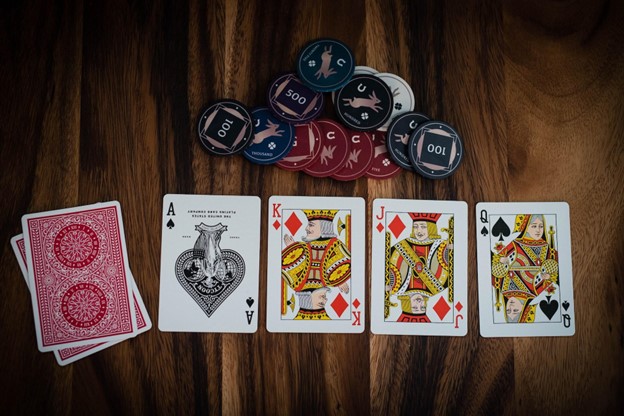The concept of ‘brain training’ is relatively new, with a 2006 study from the National Institute of Health spearheading a drive to improve our cognitive function through exercising our gray matter. Games designed for the brain, training regimens, diets to support our exercise, apps, nootropics, the list goes on.
Casino Table Games Will Train Your Brain

Casino Table Games Will Train Your Brain
The concept of ‘brain training’ is relatively new, with a 2006 study from the National Institute of Health spearheading a drive to improve our cognitive function through exercising our gray matter. Games designed for the brain, training regimens, diets to support our exercise, apps, nootropics, the list goes on.
There is increasing empirical evidence and countless anecdotal corroboration that this actually works. From people getting better exam results, improving their focus, and getting more out of the working day, the effects can be seriously impressive.
The problem is that all of these ‘solutions’ can get a little expensive. But did you know that playing old-school casino games can have a similar effect?
Yes, blackjack, roulette, poker, all of these games that have been around for hundreds of years can seriously boost your brain power. Let’s take you through the nitty gritty.
Card Counting in Blackjack
Casinos hate card counting. But our brains love it. Amongst all casino table games, card counting is probably the most notorious strategy out there. Just think of the MIT Blackjack Team, for example, immortalized in the movie 21.
The reason we’re not all winning millions with blackjack and card counting is that it’s really hard. It requires a higher level of problem-solving skills, quick decision-making, and exceptional levels of critical thinking. You need to think several steps ahead, and analyze each possible outcome quickly.
When you first start card counting, you’ll think you need to be some sort of genius to be able to pull it off. Over time, you realize that all you needed was a little bit of brain training. And all of that will bleed into other areas of your (cognitive) life.
Poker = Ultimate Brain Exercise
Poker is perhaps the Walhalla of table game training. It’s like getting a full-body workout for your brain. You not only need to be quick with your decision-making and critical thinking, but it’s also a strong psychological game that teaches you about analyzing humans.
And that’s perhaps more powerful than anything else. You will need to read the subtleties of facial expressions, emotions, and phrasing. How that slightly different pronunciation of a word is a ‘tell’ for a specific player. Figuring out whether someone is fibbing is a seriously powerful tool.
Poker is fantastic for your brain, keeping it fit and young. And we’re not just saying that. For example, research by Jeffrey Cummings, a leading neuroscientist, has found evidence that poker can stave off Alzheimer’s. This is obviously a simplification, but it’s that intense brain activity we experience when playing that helps us stay sharp as our brains age.
Too Much of the Good Stuff?
Of course, it can’t all be good news. Humans are complex, and so also the effects of gambling on our brains. Neuroimaging studies (such as this one) have shown that the ventromedial prefrontal cortex, which involves decision-making, the regulation of emotions, and memory control, and the orbitofrontal cortex, which actions emotional response, both see heightened activity during gambling sessions.
For many, this is an amazing thing when it comes to the brain. Heightened function, improved performance, and benefits in other aspects of life. However, people sensitive to problem gambling will see extraordinary responses in these areas of the brain, which can signal those sensitive to developing an addiction.
In its totality, it’s a careful balance. Just keep thinking of it in terms of a gym analogy. Exercising is good for you, but overtraining is very much a thing. You want to keep training your brain consistently, but not throwing it more than it can handle.
Keep Within Limits and Enjoy!
But listen, we’re obviously not saying gambling is a no-no. There’s a difference between a glass of wine with dinner and drinking a bottle of vodka with your breakfast. It’s all about moderation, right?
Gambling is fun, it’s entertaining. It’s a way of getting out of the drudgery of daily life, spending time with friends, and dreaming of winning that big jackpot (it happens!). Keep within your budget, never chase losses, and don’t view gambling as an investment or a way to make money. Stick to these golden rules, and you’ll have a whale of a time. And your brain will thank you to boot.








